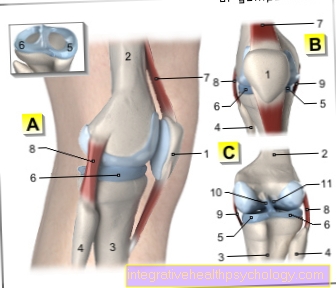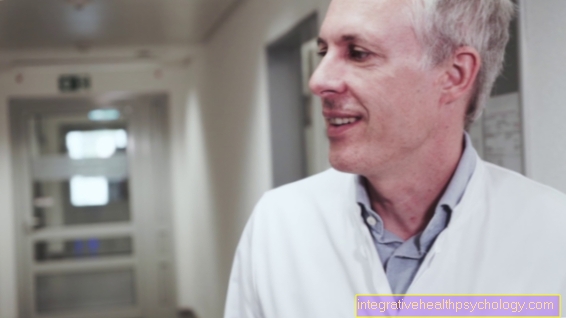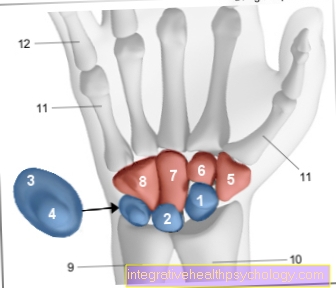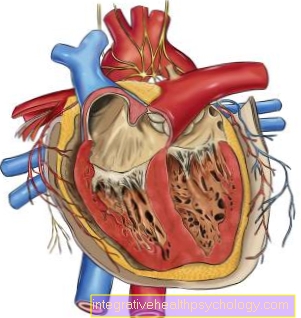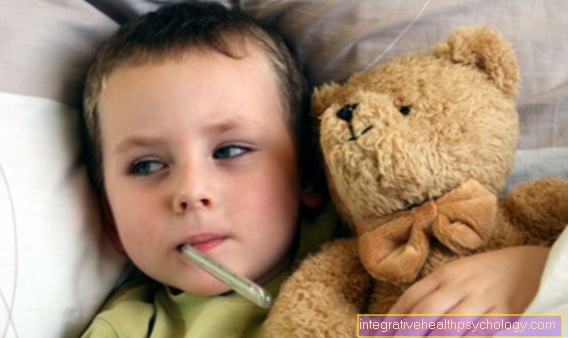Form of instruction
definition
In schools or other educational institutions, lessons are taught by a teacher to impart knowledge to the students.
There are various methods of imparting knowledge, which are usually aimed at passing on knowledge as quickly and effectively as possible and thus achieving the learning goal.
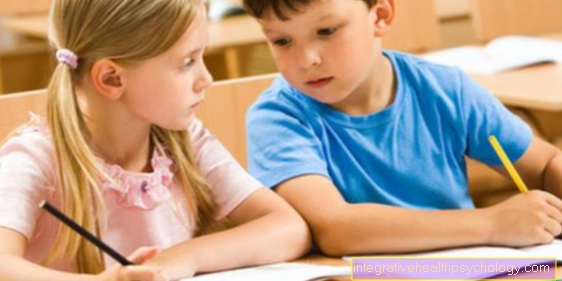
Overview of the types of lessons
These different methods are called forms of instruction; in general didactics, the forms of instruction are called basic types of instruction.
One distinguishes between
- closed lessons
- open lessons
- Workshop work
- cooperative teaching.
In many schools, different forms of teaching are also combined with one another.
Read more on the topic: Checklist for school enrollment - what does my child need?
Open teaching
The concept of open teaching is not precisely defined. In the early 2000s, this form of teaching was shaped by the pedagogue Falko Peschel.
In principle, this means that the learning process in open lessons is completely designed by the students themselves and the teacher remains more in the background. He supports the students in self-organized learning and is available for questions or problems.
The aim is for the student to deal with the content according to their individual interests and abilities. This allows the student to choose the learning material from a selection of learning materials that corresponds to his learning type. If someone learns particularly well through listening, for example, then radio plays or films and discussions are ideal.
So it is up to the student which method he uses and whether this takes place in individual or group work.
You might also be interested in:
- Open Classes- Everything You Should Know
- Transition from daycare to primary school
Closed lessons
A closed lesson describes a school-based learning that is determined by the teacher and / or a curriculum. The lessons are always comprehensible and can always be checked in terms of execution and result. Even before the lesson has started, the binding learning objectives are set. The learning content, methods, media, time structure and performance records are also precisely planned.
The closed lessons especially encourage and demand reproduction on the part of the pupils. This teaching concept is less about learning with one another than about one-sided communication on the part of the teacher.
For this reason, this method is useful when the fastest possible and error-free reproduction of learning content is required. The student is expected to behave in a manner that adapts to the given rules.
This form of teaching is unsuitable for creative tasks or individual solutions.
You can find out whether your child is ready for school under: School enrollment test
At this point it is also important which role the school break plays in the child's concentration. Read more about this at: The school break
Cooperative teaching
Cooperative forms of teaching are competence-oriented with a focus on the independent and responsible behavior of the students. Cooperative learning is characterized by three basic levels.
- In the first stage, the students work on something individually. At this stage, the acquisition of knowledge is in the foreground.
- This is discussed in the second stage with the partner, in partner work, or with the group, in this stage there is an exchange and knowledge is compared.
- In the third stage, what has been developed is presented; now every student should be able to present the results to the entire group.
In summary, all group members get a common understanding of a question.
Read the next article on the topic of everyday school life at this point: School year
Forms of instruction in primary school
In primary school, different forms of teaching are often mixed in order to suit all types of learner as far as possible. The motivation of the primary school students can be increased by a varied class.
Find out here how your child can best memorize information at school: What type of learner am I?
In addition to the classic closed lessons, emphasis is often placed on more open elements. The students are then allowed to work in pairs or in groups to work on topics themselves, so that the students can learn with and from each other.
Some elementary schools offer students workshop work in some classes. This can take place in the context of certain topics, but as a rule this form of teaching does not have a fixed place in the timetable. In the workshop work, the children have the opportunity to work out something for themselves on various topics at self-selected learning stations at their own pace. Through such learning stations the children learn self-organized learning and self-control.
Not only many elementary schools, but also almost all secondary schools, offer project teaching once a year or every two years; this is often referred to as a project week. During this week, the students work on topics that interest them and that have no place in everyday school life. As a rule, interactive lessons are offered in this project week and not frontal lessons, in which children are often allowed to make something themselves.
Also read the article on the subject: Tips for back to school and no heat at school
Hilbert Meyer on lessons
Hilbert Meyer was born in 1941 and is a German pedagogue and professor for school pedagogy at the Carl von Ossietzky University in Oldenburg.
Meyer became known for his study books on didactics and for his pleading for action-oriented teaching. He is considered an authority on school education. Meyer formulates ten standards for analyzing and evaluating lessons, such as the balance between individualized and shared learning.
Meyer is not only concerned with the development of lessons, but also with school management and the management of the teaching staff.
More about this topic can be found: The didactic triangle for successful teaching
Recommendations from the editorial team
You might also be interested in:
- Tips for starting school
- Compulsory schooling
- School enrollment test
- Transition from daycare to primary school
- Raising children - you should know that







